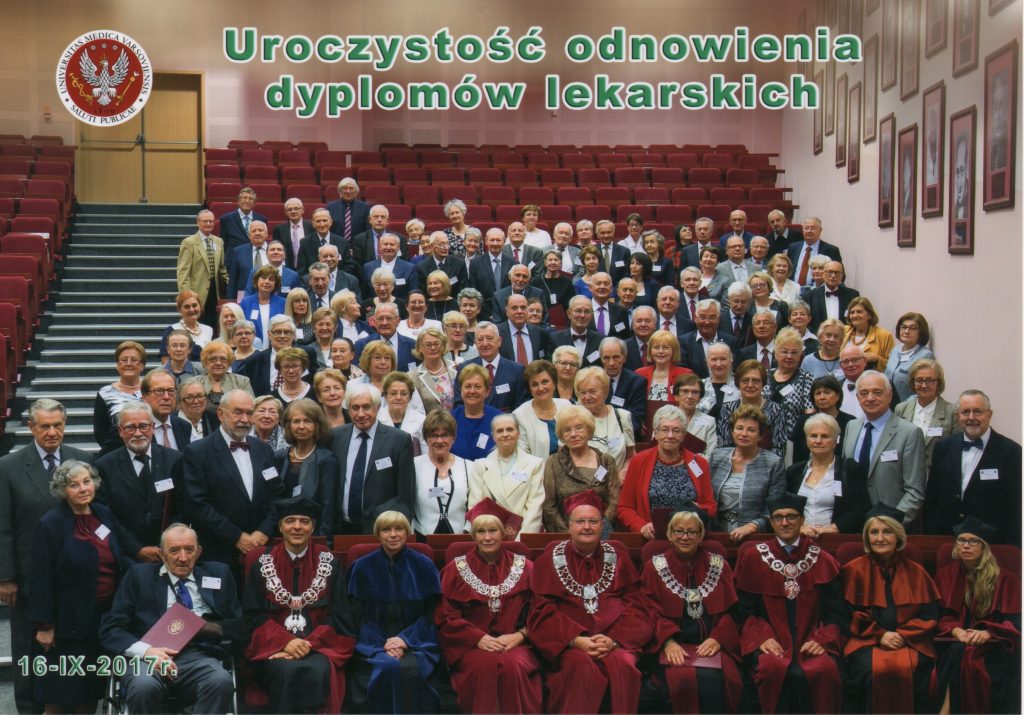I just came back from Warsaw. My old Alma Mater honored us with the repeat of our graduation ceremony, from fifty-years back. Fifty years! I could remember us at our first one. Imagine a bunch of twenty-something boys and girls, all anxious to put the recently acquired knowledge to use, all facing dreamed careers of ever-respected physicians, all gathered in the same room receiving our navy-blue diplomas. And now, we, well, most of us, gathered in the same room, receiving our certificates again. This time they were bigger and red. And, to me, much more valuable. The blue ones were given on credit, with the expectation, that we will do some good. The second ones were real awards for doing something good indeed.
Fifty years….
It took us that long to disperse in the country, and in the world for that matter, and then gather again in the same room. Some didn’t make here, for more or less obvious reasons. But many did, and I was anxious to find out what had happened to my friends throughout the years.
First, I had to be able to recognize them. And it wasn’t easy. We had name-tags, but they weren’t designed for seniors like us. The title of the meeting, in a large font, was at the top, but our names, with much smaller letters, were at the bottom and quite difficult to see, especially in the dark room. One had to bend over, or put the glasses on, to be able to know with whom he or she had the pleasure. So I had to guess. But after a while, I realized that the old memories came back. There was always something left in the person resisting the merciless aging: be it the voice, little mannerisms, smile, or the way of walking. This remained like a genetic stamp on an aging body, a little stubbornness of inner resistance to the process of the ever-shortening telomeres.
We all were well past our seventieth birthday. We all were past the customary, although somewhat arbitrary, retirement age. So, after a short conversation, one of my questions was: are you still working? Their answers fascinated me and overall created certain patterns.
First, not many said, that they don’t. Most were involved in some kind of activity related to their learned profession. People who didn’t be forced out by the mandatory retirement as, say, the chairmen of the University Departments. But even those did some consulting work on the side.
Many of them work and said they do because they love what they’re doing. Fair enough. That’s probably the most glorious motivation. Good for them, and one is happy that they still feel useful and are being appreciated as such. Of course, at that age, the real contribution of a cardiac surgeon cannot be measured with the contribution of, say, a family practitioner working limited hours.
The next common answer was “I have to work”. It meant, “I don’t have enough means to support my current lifestyle, and I’m unable to scale down”. This was more troubling as fifty years in a chosen, glorious profession should ensure at least a modest, albeit comfortable retirement. In those cases, there were some common circumstances, such as health problems, personal marital discourses or financial setbacks, more or less related to the activity, or non-activity, of the person in question.
But the most ominous answer was “I have to work because I don’t know what else to do”. It usually meant that this doctor didn’t have any other interests besides those refined in the medical school. That was troublesome. And was not that unusual.
About the reach of a surgeon’s mind – I my next post.


